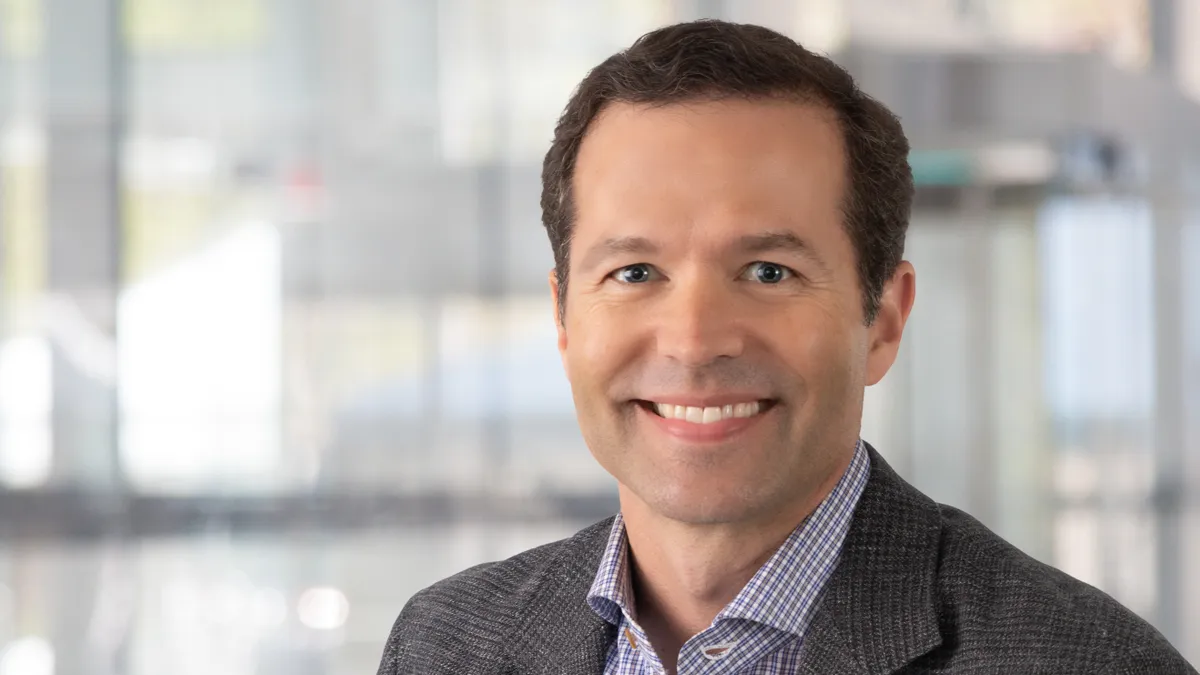Leading finance during the COVID-19 pandemic has proven challenging for many CFOs across industries, with good reason. An AICPA survey from June found finance leaders are the most pessimistic they've been since the Great Recession.
While some struggle with decisions regarding widespread layoffs, others grapple with forecasting an unpredictable future. One survey found 94% of CFOs have, since the beginning of shutdown mandates, decided a risk strategy overhaul is vital for survival.
There's little CFOs could have done to prepare for the wreckage of COVID-19. But Kurt Shintaffer, CFO and co-founder of software company Apptio, has a leg up: he's led the Bellevue, Wash.-based company's finance for 13 years, a tenure far exceeding that of the average CFO, which hovers around four to five years. This long history has given him a deep knowledge of the company, which he thinks has helped him manage against the pandemic.
"Not many CFOs get to go through multiple recessions, or significant business cycles, at the same company," Shintaffer told CFO Dive.
Benefits of a long tenure
Shintaffer co-founded Apptio in 2007 to provide cloud-based apps tailored towards finance organizations, partnered with IT, to help organize planning and technology spend, he said. "That means understanding scenario planning, and how investments in tech can impact your business over the long-term."
Any good scenario planning system must be able to track investments over time, he said. The best way to think about it: a head of sales has a CRM system; a head of supply chain has a CRM system. Apptio is that system for the IT and CFO connection. Apptio is tailored for CFOs looking to make smart investing decisions, which lately has been the cloud shift. As a result, the company is faring quite well mid-pandemic.
Apptio brought its first product to market during the 2008 recession, an experience Shintaffer said has primed him for the current financial crisis.
"We're well accustomed to pivoting how we take our products to market, and messaging them based on the market we're in," he said. "Imagine going to market in 2008 or 2009. Our message was: we can help you reduce costs in a smart way. We have data on managing IT costs; knowing where you’re standing with IT is delivering good business value."
Prioritizing tech is key
Prior to Apptio, Shintaffer oversaw the corporate finance, legal, accounting, human resource, and information technology functions at software firm iConclude, which was sold to Opsware in 2007.
At Apptio, Shintaffer's 13-year tenure has provided him with the necessary viewpoints to guide the business through the pandemic as smoothly as possible. Currently, the company doesn't have to guess about what will work as it takes its product to market, because it's helmed by a CFO who's done it before.
Shintaffer recognizes the CFO's hesitance to commit to long-term investments of any kind, particularly in IT, if they don't see a clear ROI. But the same CFOs, he said, know every company is a technology company, and the companies who bounce back from challenges, and who will be the strongest to emerge from the pandemic, are the ones who make smart bets in tech to differentiate from competitors.
"The CIO-CFO connection is based on a data set, and is well understood and believed to be the system of record," he added. "That’s a huge asset for times like these."
Charting a path forward
Even against the unpredictable path of he pandemic, there are some KPIs and areas of data CFOs should rely on when forming forecasts, Shintaffer said.
"First thing you need to do is expand the number of metrics and KPIs you're tracking, because what used to be the core set of metrics telling you where business is going won’t necessarily be the same," Shintaffer said.
He mentioned customer interactions, which have become completely upturned since COVID-19 hit. "There's a greater need for data triangulation to see what’s real and what's noise," he said. "You have to look at more data points; there's so much uncertainty around what you can rely on. Some data is more important to be looking at than others. To do that, you end up with multiple scenarios."
Words of advice
Shintaffer's advice to other CFOs, whether new to the job or have grown up with the company, is to double down on relationships with peers and with the executive team.
"An operational CFO will think they can see the data, and make decisions based on it, but there's no substitute for partnering with peers and getting a better lens into their way of thinking," he said.
For instance, if a CFO is looking at sales pipeline data thinking they know the whole story, they could be missing substantial context. "The chief revenue officer will have insights I don't, because they're closer to that process," he said. "Make sure you have great data and great relationships; they'll give you better insights for reacting to that data."
On the tech and investments front, Shintaffer encourages CFOs to try finding places to make smart bets. "Long-term, the most risk-averse companies aren't the ones who win the market," he said. "Now is the opportunity, if you have the conviction and data to make smart bets. I think we'll see winners based on those who make these bets now, versus those who are the last to come out of the bunker."






















